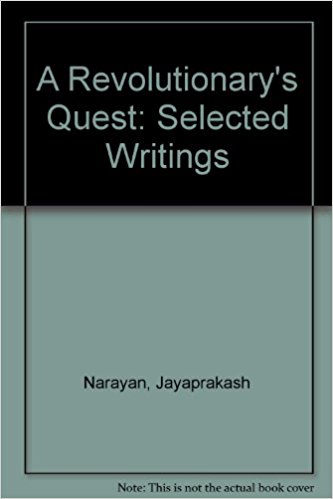Nobody may dispute that Jayaprakash Narayan, popularly called JP, has been an important factor in Indian polity for about half a century. Starting as a Marxist (while a student in the United States of America!), he became a votary of non-violence under Gandhi’s influence and took part in the various satyagraha movements launched by the Mahatma for the country’s freedom. After independence his thinking underwent further quick changes and he died a totally disillusioned man—disillusioned with everything he had believed in at some stage or other in his life. His final call for a ‘total revolution’ seemed a cry of despair. One need not be surprised if the people of India very shortly turn their backs on his memory as they have almost done it in the case of Gandhi and Nehru. JP’s ‘total failure’ to change the national scenario for the better notwithstanding, it is worthwhile to study him in the historical perspective. Professor Bimal Prasad deserves our gratitude for arranging JP’s writings and speeches in a way as to give an authoritative account of the evolution of his political beliefs.
Sept-Oct 1980, volume 5, No 9/10

